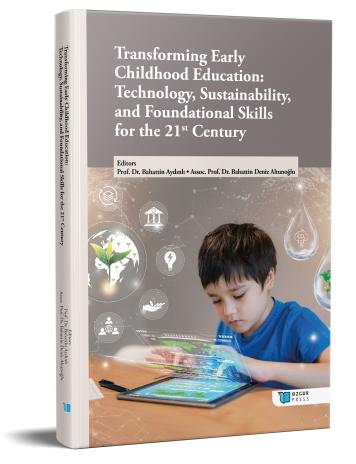
The Relationship Between Self-Regulation Skills and Anxiety Levels in Preschool-Aged Children
Chapter from the book:
Aydınlı,
B.
&
Altunoğlu,
B.
D.
(eds.)
2024.
Transforming Early Childhood Education: Technology, Sustainability, and Foundational Skills for the 21st Century .
Synopsis
Early childhood is a foundational period in life, during which developmental domains and skills begin to emerge. One of these skills is self-regulation. Self-regulation skills involve the ability of an individual to control their emotional, cognitive, and behavioral characteristics. This study was conducted to examine the relationship between self-regulation skills and anxiety levels in preschool children. To this end, the study focused on the relationship between children's self-regulation skills and anxiety levels, and whether this relationship showed significant differences based on demographic characteristics.
The research was carried out with the parents of 402 children aged 4-6 years who were attending preschool education institutions in the province of Samsun. To measure children's self-regulation skills, the Self-Regulation Skills Scale for 4-6-Year-Olds (Parent Form) was used. To assess the anxiety levels of preschool children, the Preschool Anxiety Scale adapted for 4-6-year-old children was utilized, along with a personal information form created by the researcher for families and children.
For the analysis of research data, statistical techniques such as Pearson Correlation Analysis, MANOVA, ANOVA, and t-tests were employed following a normality assessment. The results of the study revealed a low-level, negative correlation between children's self-regulation skills and anxiety levels. As children's self-regulation skills increased, their anxiety levels decreased, or conversely, as anxiety levels increased, self-regulation skills declined. It was concluded that, in terms of the impact of self-regulation skills on anxiety levels, the other hypotheses did not show a significant difference.

